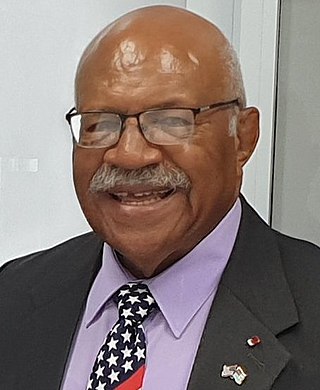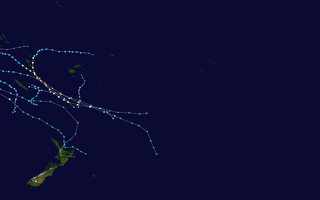Related Research Articles

The Department for Digital, Culture, Media and Sport (DCMS) is a department of His Majesty's Government, with responsibility for culture and sport in England, the building of a digital economy, and some aspects of the media throughout the UK, such as broadcasting and the Internet.

The Adelaide Festival of Arts, also known as the Adelaide Festival, an arts festival, takes place in the South Australian capital of Adelaide in March each year. Started in 1960, it is a major celebration of the arts and a significant cultural event in Australia.
Fiji Airways is the flag carrier airline of Fiji and operates international services from its hubs in Fiji to 13 countries and 26 cities including, Australia, New Zealand, Samoa, Tonga, Tuvalu, Kiribati, Vanuatu and Solomon Islands (Oceania), Hong Kong, Japan, Singapore, Canada and the United States. It has an extended network of 108 international destinations through its codeshare partners. The Fiji Airways Group brings in 64 percent of all visitors who fly to Fiji, employs over 1000 employees, and earns revenues of over FJD$815 million (US$390m).

Sitiveni Ligamamada Rabuka is a Fijian politician who has served as Prime Minister of Fiji since 24 December 2022. He was the instigator of two military coups in 1987. He was democratically elected as Prime Minister of Fiji, serving from 1992 to 1999, and again in 2022, leading a three-party coalition. He also served as Chairman of the Great Council of Chiefs from 1999 to 2001, and later as Chairman of the Cakaudrove Provincial Council from 2001 to 2008.

Tourism is an important sector for Philippine economy. The travel and tourism industry contributed 5.2%% to the country's GDP in 2021; this was lower than the 12.7% recorded in 2019 prior to the COVID-19 lockdowns. The country is known for having its rich biodiversity as its main tourist attraction. Popular destinations among tourists include Boracay, Palawan, and Siargao. Despite potential, the Philippines has lagged in tourism industry behind some of its Southeast Asian neighbors due to political and social problems.
The International Broadcasting Bureau (IBB) is the technical support outlet within the United States Agency for Global Media (USAGM), which is a U.S. independent agency. The IBB supports the day-to-day operations of Voice of America (VOA) and the Office of Cuba Broadcasting. It also provides transmission and technical support for all of the independent non-military broadcasting services funded by the USAGM. The IBB is located in Washington, D.C.

The Ministry of Tourism and Sports is a cabinet ministry in the Government of Thailand. The ministry's primary areas of responsibility are tourism and sports. The ministry is in charge of managing the tourist industry and sports both in schools and other institutions. The ministry organizes and directs Thailand's important sporting events. Its FY2019 budget is 6,413.9 million baht.
Visa requirements for New Zealand citizens are administrative entry restrictions by the authorities of other states placed on citizens of New Zealand. As of 2023, New Zealand citizens had visa-free or visa on arrival access to 187 countries and territories, ranking the New Zealand passport 7th in terms of travel freedom according to the Henley Passport Index.
The Ministry of Heritage, Sport, Tourism and Culture Industries, was created on January 18, 2010 when the Ministry of Culture and the Ministry of Tourism were combined under one ministry. Sport was added to the portfolio in 2011. It is responsible for the development of policies and programs and the operation of programs related to tourism, arts, cultural industries, heritage sectors and libraries, in Ontario. The Ministry works in partnership with its agencies, attractions, boards and commissions and the private sector to maximize the economic, cultural and social contributions of its agencies and attractions, while promoting the tourism industry and preserving Ontario's culture and heritage.

Mosese Drecala Bulitavu is a Fijian politician and Member of the Parliament of Fiji. He is a member of the FijiFirst party.

Severe Tropical Cyclone Ula was a powerful and long-lived tropical cyclone during late December 2015 and mid-January 2016. It originated from a tropical disturbance on December 26, 2015, east of the Solomon Islands. Moving generally east, development was initially slow and the system finally reached cyclone strength—having gale-force winds—on December 30. The newly christened Tropical Cyclone Ula turned sharply south and rapidly intensified, attaining hurricane-strength the following day. A shift to the southwest brought the system close to the northern islands of Tonga on January 2, 2016. It subsequently brushed several islands in the Lau Group of Fiji before weakening. Nearly degrading to a tropical depression, Ula turned to the northwest and regained strength. After turning back to the southwest, it achieved its peak intensity as a Category 4 on the Australian scale with winds of 185 km/h (115 mph) on January 10. Thereafter, the storm bypassed Vanuatu to the southeast and New Caledonia to the east as it accelerated southward.

Severe Tropical Cyclone Tino was a tropical cyclone which itself and an associated convergence zone caused significant damage across ten island nations in the South Pacific Ocean during January 2020. First noted as a tropical disturbance during January 11, to the southwest of Honiara in the Solomon Islands, the system gradually developed over the next few days as it moved eastwards in between the Solomon Islands and Vanuatu prior to being named Tino as it approached Fiji during January 16. Continuing to track south-eastward, Tino continued strengthening as it passed near Fiji, bringing copious amounts of rainfall to the area. Whilst losing latitude, the system continued to strengthen and peaked as a category 3 tropical cyclone on January 17, with signs of an eye forming. Shortly after peak intensity, Tino was impacted by high wind shear and decreasing sea surface temperatures, triggering a weakening trend. Tino moved out of the tropics shortly thereafter and became an extratropical cyclone during January 19.

The COVID-19 pandemic in Fiji is part of the ongoing worldwide pandemic of coronavirus disease 2019 caused by severe acute respiratory syndrome coronavirus 2. The first case of the disease in Fiji was reported on 19 March 2020 in Lautoka. as of 3 January 2022, the country has had a total of 55,009 cases as of which 2,417 are currently active and 702 deaths, with cases reported on all divisions of the country. Apart from the COVID-19 deaths, 621 COVID-19 positive patients have died from pre-existing non-COVID-19 related illnesses. In March 2021, Fiji became the first Pacific island country to receive COVID-19 vaccines through the COVAX initiative with frontline workers and first responders the first to be vaccinated. As of 2 January 2022, more than 600,000 (98%) Fijians have received their first jab of the vaccine and almost 560,000 (92%) Fijians have received their second jab and are fully vaccinated. To date, only the AstraZeneca vaccine, Moderna vaccine and the Pfizer BioNTech vaccine have been deployed in the country. The country have also administered booster shots. Vaccination is mandated, however only to the adult population.
The COVID-19 vaccination campaign began in Fiji on the first quarter of 2021 and will continue throughout the year with the goal of vaccinating all eligible Fijians. The government has made it mandatory for all eligible adults to take the COVID-19 vaccines.
The following is a timeline of the COVID-19 pandemic in Fiji.

This article documents the chronology of the response to the COVID-19 pandemic in January 2022, which originated in Wuhan, China in December 2019. Some developments may become known or fully understood only in retrospect. Reporting on this pandemic began in December 2019.

General elections were held in Fiji on 14 December 2022 to elect the 55 members of Parliament. The elections took place following the passage of controversial electoral amendments.

The People's Alliance is a political party in Fiji. The party was formed in 2021 by Sitiveni Rabuka who served as Prime Minister of Fiji from 1992 to 1999 and again from December 2022.

The 2022–23 South Pacific cyclone season is the period of the year when most tropical cyclones form within the South Pacific Ocean to the east of 160°E. The season officially started on November 1, 2022, and will end on April 30, 2023, however a tropical cyclone could form at any time between July 1, 2022, and June 30, 2023, and would count towards the season total. During the season, tropical cyclones will be officially monitored by the Fiji Meteorological Service, Australian Bureau of Meteorology and New Zealand's MetService. The United States Armed Forces through the Joint Typhoon Warning Center (JTWC) will also monitor the basin and issue unofficial warnings for American interests. The FMS attaches a number and an F suffix to tropical disturbances that form in or move into the basin while the JTWC designates significant tropical cyclones with a number and a P suffix. The BoM, FMS and MetService all use the Australian Tropical Cyclone Intensity Scale and estimate windspeeds with a period of approximately ten minutes, while the JTWC estimated sustained winds over a 1-minute period, which are subsequently compared to the Saffir–Simpson hurricane wind scale (SSHWS) and indicates the estimated intensity.
The Public Service Commission (PSC) is a statutory agency in Fiji within the Ministry of Civil Service that is responsible for overseeing standards of all civil servants.
References
- ↑ "Tourism Fiji to work with allocated budget". Fiji Broadcasting Corporation. 22 July 2022. Archived from the original on 24 July 2022. Retrieved 11 January 2023.
- ↑ "Hill appointed Tourism Fiji CEO". Fiji Broadcasting Corporation. 12 July 2021. Archived from the original on 17 July 2021. Retrieved 11 January 2023.
- ↑ "Tourism". mcttt.gov.fj. Archived from the original on 6 December 2022. Retrieved 11 January 2023.
- ↑ "About us, Tourism Fiji". corporate.fiji.travel. Archived from the original on 11 May 2022. Retrieved 11 January 2023.
- ↑ "Who We Are, Tourism Fiji". corporate.fiji.travel. Archived from the original on 11 January 2023. Retrieved 11 January 2023.
- ↑ Mitchell, John (19 September 2020). "The history of Fiji tourism". FijiTimes. Archived from the original on 11 January 2023. Retrieved 11 January 2022.
- ↑ Tourism Fiji Act 2004 Archived 2022-07-28 at the Wayback Machine . Retrieved 11 January 2023
- ↑ "Rebel Wilson 'face of paradise' for Fiji reopening next week". NZ Herald. Archived from the original on 11 January 2023. Retrieved 11 January 2023.
- ↑ Journalist. "Fiji is 'Open for Happiness'". Fiji Broadcasting Corporation. Archived from the original on 3 December 2021. Retrieved 11 January 2023.
- ↑ "Anger as Fiji tourism ad swaps 'church' for 'toilet'". The Jakarta Post. Archived from the original on 6 December 2018. Retrieved 11 January 2023.
- ↑ "Anger, derision and red faces after Fiji tourism confuses worship and toilet". RNZ. 25 April 2018. Archived from the original on 11 January 2023. Retrieved 11 January 2023.
- ↑ Nasiko, Repeka (25 April 2018). "Outcry on Tourism Fiji error". FijiTimes. Archived from the original on 15 June 2018. Retrieved 11 January 2023.
- ↑ Nasiko, Repeka (25 April 2018). "Tourism Fiji apologises for mismatched promo". FijiTimes. Archived from the original on 6 August 2020. Retrieved 11 January 2023.
- ↑ Susu, Aqela. "Tourism Fiji staff terminated due to incorrect advertisement". FijiTimes. Archived from the original on 14 February 2019. Retrieved 11 January 2023.